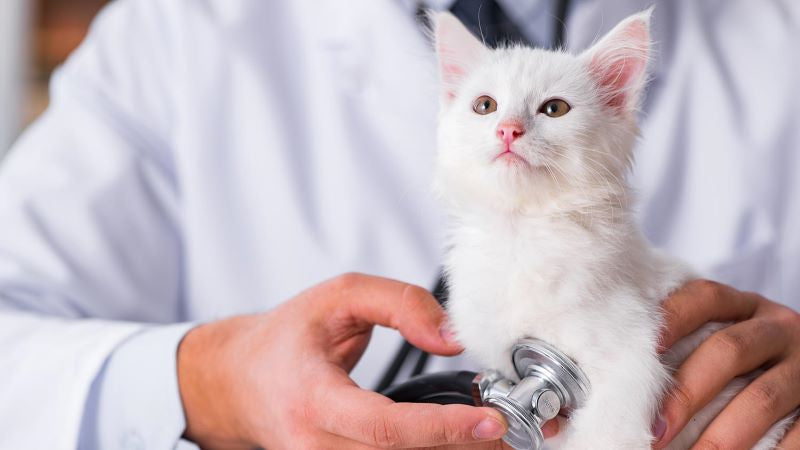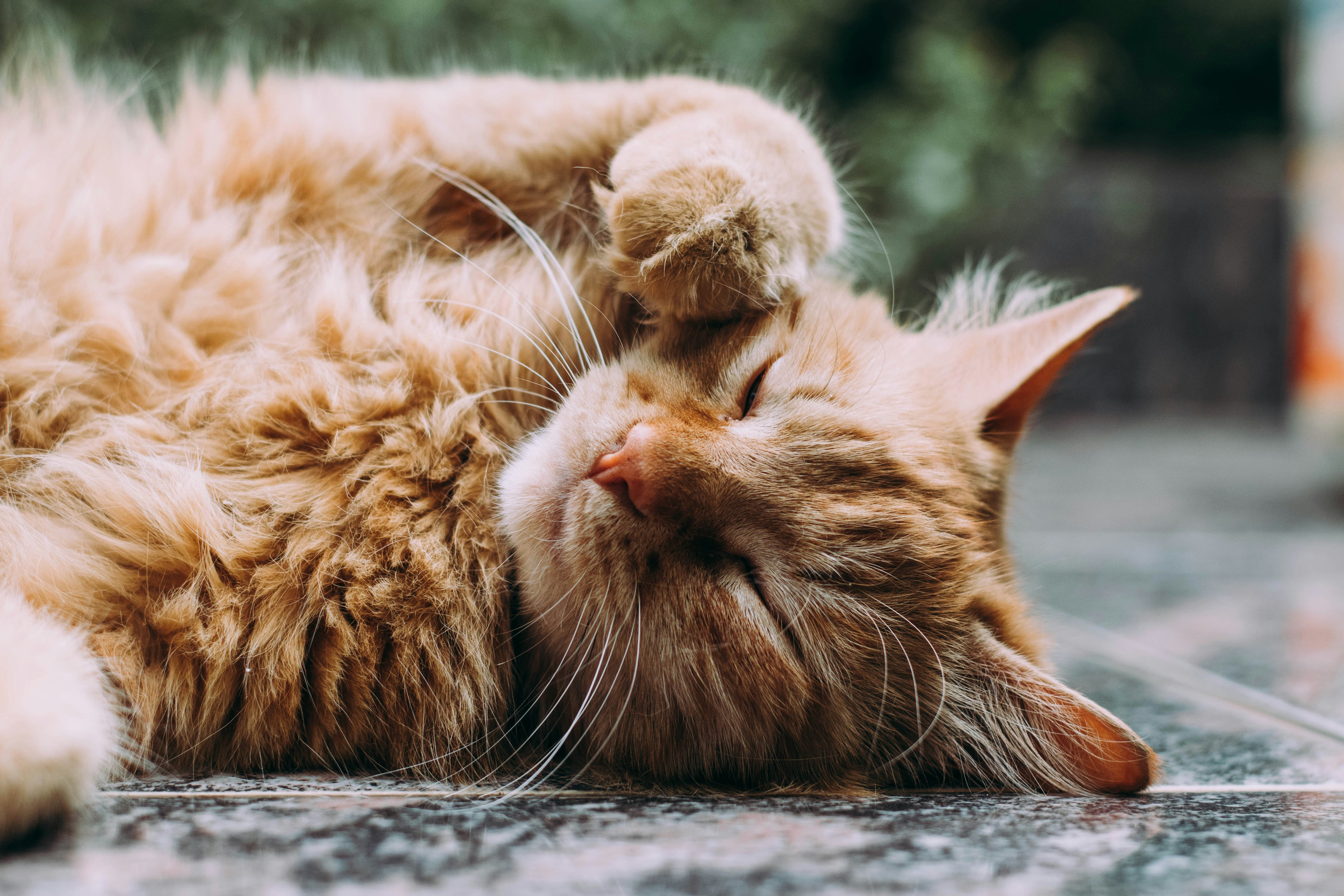Felines ( Cats ) are not just pets; they are family members that bring joy, companionship, and warmth to our lives. As responsible cat owners, we are obligated to ensure that our feline companions lead lives that are not only comfortable but also healthy. Among the many health concerns that can affect cats, Feline Leukemia Virus (FeLV) and Feline Immunodeficiency Virus (FIV), commonly referred to as feline leukemia and feline AIDS, represent two significant threats. Understanding these diseases is essential for any cat owner. This article delves into the symptoms, prevention strategies, and treatment options available for these conditions while providing valuable insights for safeguarding your furry friend.
What is Feline Leukemia?
Feline Leukemia is a viral infection that severely impacts a cat's immune system and red blood cells. The disease is caused by the Feline Leukemia Virus, which is primarily transmitted through saliva, urine, and close contact with an infected cat. This means that cats who live outdoors or have frequent contact with other cats are at greater risk. Feline leukemia can lead to a multitude of health issues, including anemia, increased susceptibility to infections, and various types of cancers.
Symptoms of Feline Leukemia
Recognizing the symptoms of feline leukemia is crucial for timely intervention and proper treatment. Here are some common signs to watch for:
- Weight loss: Unintentional weight loss is often one of the first noticeable signs.
- Poor appetite: Cats may lose interest in their food.
- Reduced energy levels: Infected cats may become lethargic and less active.
- Pale gums: This may indicate anemia or other blood-related issues.
- Persistent fever: Frequent or continuous fever can be a red flag.
- Frequent infections: A compromised immune system means cats are more prone to infections.
- Enlarged lymph nodes: Swelling in the lymph nodes can also be indicative of the disease.
What is Feline AIDS?
Feline Immunodeficiency Virus (FIV), commonly known as feline AIDS, is another viral infection that impacts a cat's immune system. Similar to feline leukemia, FIV is primarily transmitted through bites; therefore, outdoor or aggressive cats are at greater risk. While FIV-positive cats can live long, fulfilling lives, they may experience complications related to secondary infections and other health issues as the disease progresses.
Symptoms of Feline AIDS
Symptoms of feline AIDS might not appear immediately, but as the disease advances, cat owners should remain vigilant for the following signs:
- Weight loss: A noticeable decrease in weight can be alarming.
- Poor coat condition: The cat's fur may appear dull or unkempt.
- Recurring fever: A persistent fever is a symptom of immune compromise.
- Persistent diarrhea: Digestive issues may arise as the disease progresses.
- Frequent respiratory infections: Cats may develop chronic respiratory issues.
- Gingivitis or other dental issues: Oral health can deteriorate as a result of immune system failure.
Understanding Transmission and Risk Factors
Both feline leukemia and feline AIDS are more prevalent among specific populations of cats. Understanding how these viruses are transmitted can help cat owners mitigate risks. FeLV is typically spread through saliva, so behaviors such as grooming, sharing food or water bowls, and biting during fights can facilitate transmission. Conversely, FIV is primarily transmitted through bite wounds, making it more common among male cats who are more likely to engage in aggressive behaviors.
Prevention of Feline Leukemia and AIDS
Preventing feline leukemia and AIDS is paramount in ensuring the health and longevity of your cat. Here are key preventive measures that every cat owner should consider:
Vaccination
Vaccination against feline leukemia is crucial for kittens and at-risk adult cats. While vaccinations can significantly reduce the risk of infection, regular booster shots are often required. It is essential to consult with your veterinarian to determine the best vaccination strategy for your cat, especially if you have multiple cats or cats that go outdoors frequently.
Limit Outdoor Exposure
Keeping your cat indoors or supervising their outdoor activities can dramatically reduce the risk of exposure to FeLV and FIV. While indoor cats generally lead longer, healthier lives, if you choose to allow outdoor time, consider creating a secure outdoor enclosure or using a harness and leash.
Spaying and Neutering
Having your cats spayed or neutered can significantly decrease aggressive behavior and limit the potential for fighting with other cats. This, in turn, reduces the likelihood of transmitting feline leukemia and AIDS. Additionally, spaying and neutering contribute to better overall health and behavior.
Regular Veterinary Check-Ups
Routine veterinary visits allow for early detection of potential health issues, including feline leukemia and AIDS. Discuss with your veterinarian about screening tests, especially if your cat has had exposure to other cats, and make sure to keep up with vaccinations and boosters.
Treatment Options for Feline Leukemia and AIDS
While both feline leukemia and AIDS are chronic conditions without a definitive cure, there are treatment options available that can help manage symptoms and enhance your cat's quality of life.
Supportive Care
Supportive care is a critical component of managing feline leukemia and AIDS. Providing a nutritious diet, ensuring proper hydration, and creating a comfortable living environment are essential. Maintain a stress-free home, as stress can exacerbate health conditions. Your veterinarian may also recommend specific dietary adjustments or supplements that can assist in boosting your cat's immune system.
Antiviral Medications
In some cases, antiviral medications may be prescribed to help manage viral infections in cats. While these medications are not a cure, they can help control symptoms and potentially extend the life of infected cats. Always consult with your veterinarian for appropriate prescriptions that suit your cat's specific needs.
Care Considerations for Feline Leukemia and AIDS
Caring for a cat diagnosed with feline leukemia or AIDS presents unique challenges. Regular monitoring and veterinary visits are crucial for assessing your cat's health and managing any emerging complications. Some considerations include:
- Isolation: An infected cat should be kept away from healthy cats to prevent the spread of the disease.
- Hygiene: Maintain a clean environment, regularly clean litter boxes, and sanitize feeding bowls.
- Behavioral Changes: Pay attention to behavioral changes that may indicate discomfort or illness. Cats are masters at hiding symptoms, so vigilance is key.
Cats Products for Immunocompromised Felines
As a cat owner concerned about feline leukemia and AIDS, investing in high-quality products tailored for the health and well-being of affected cats can be beneficial. Here are four carefully selected products that can support your cat's immune system and overall health:
1. High-Quality Cat Food
Feeding your cat a balanced and nutritious diet is fundamental. Look for high-quality, grain-free cat food that contains real meat and essential nutrients. Products rich in antioxidants can further support immune health.
2. Cat Supplements
Consider adding immune-boosting supplements to your cat's diet. Options such as probiotics can improve gut health, while omega-3 fatty acids can reduce inflammation. Consult your veterinarian to identify the best supplements for your cat's specific health needs.
3. Comfortable Cat Beds
Providing your cat with a cozy and quiet space is vital for their well-being. Look for supportive, washable cat beds that offer comfort and security. A sheltered area can help reduce stress, which is crucial for maintaining health.
4. Scratching Posts and Toys
Encouraging exercise and mental stimulation can help maintain a healthy weight and engage your cat. Invest in scratching posts and interactive toys that keep your cat active and entertained. Playtime is essential for emotional well-being, especially for cats dealing with chronic illnesses.
Resources for Cat Owners
Understanding feline leukemia and AIDS is an ongoing process that requires keeping current with the latest information and resources. Consider joining local or online support groups for cat owners facing similar challenges. Many organizations and veterinary clinics offer seminars, workshops, and literature that can enhance your understanding of these conditions. Resources may include:
- Veterinary Clinics: Regular communication with your veterinarian allows you to stay informed about the best practices for managing feline leukemia and AIDS.
- Online Communities: Joining cat owner forums can provide invaluable support, allowing you to share experiences and advice with others.
- Books and Articles: Consider reading books or articles focused on feline health and chronic diseases for additional insights.
Conclusion
Feline leukemia and AIDS are serious health concerns for cats, but they can be managed effectively with proper understanding and care. By being aware of the symptoms, employing preventive measures, and knowing treatment options, cat owners can provide the best care possible for their beloved feline companions. Always consult with your veterinarian for personalized advice and support tailored to your cat’s specific needs. Together, we can promote the health and happiness of our cherished cats, ensuring they live their lives to the fullest.







Share:
Dog Dental Cleaning? The Importance for Your Pet's Health
Understanding Kennel Cough: Essential Symptoms, Effective Treatment, and Proven Prevention Strategies